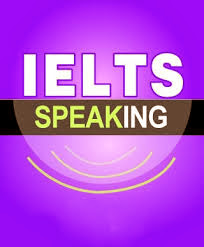The speaking element
The IELTS speaking test takes between 11 and 14 minutes and is in the form of an oral interview amongst the candidate and an examiner. During the interview you will require to answer questions asked by the examiner. You are asked to speak at length on a topic given by the examiner and provide and explain your views on a variety of issues related to that topic.

The interview has three key elements
- General questions about yourself, your life and your interests.
- A brief discussion on a given topic.
- A discussion of issues related to a given topic.
- Relax and speak with confidence
Candidates who will not properly participate in the discussion with examiner will surely fail to achieve their prospective band score. The reason behind this is that they are not able to showcase their expertise in the language.
- Learn how the Speaking element is assessed.
The objective of the test is to evaluate your capacity to communicate efficiently. The examiner ponders this ability in four different ways:
Fluency and Coherence
Lexical Resource
Grammatical Range and Accuracy
Pronunciation
- Be prepared to answer the questions asked by the examiner.
It begins with an introduction in which the examiner asks you basic questions about yourself and asks to see your identification. The examiner will then go on to ask you further questions about yourself, your family/hometown, your job or studies and a range of similar topic areas that are familiar to you. In order to score more points in this section follow these tips like:
- Provide full answers to all questions
- Give longer responses to some questions
- Give information by describing and explaining
- Identify what to expect.
The initial section of the test will consists of some basic information about you, your origin, and identification. From this information the examiner will clearly assess about your English speaking abilities.
- Carefully contemplate what you know about the questions which were asked to you.
Think of all the possible questions that the examiner can ask about you and make sure that you have all the vocabulary you need to discuss the topics in depth. Check and practice the pronunciation of any new vocabulary. Practice extending your answers to questions. You will perform better in the IELTS interview if your speech is fluent. You should also be prepared to make use of the past, present and present perfect tenses to describe your current situation in an effective and correct way.
Be prepared to answer any question in a perfect way, with a perfect use of speed, proper pronunciation and accurate use of synonyms, idioms and phrases.









